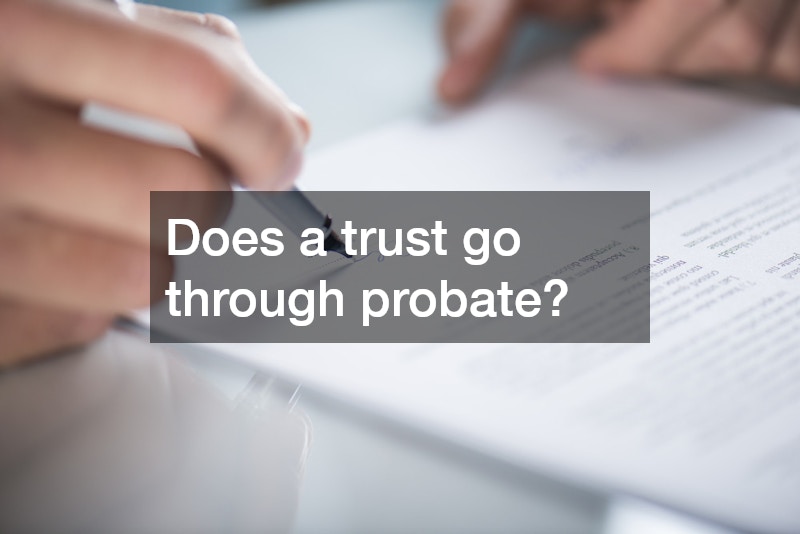
Working with a local trust lawyer ensures that your estate planning is handled professionally and according to state laws. One of the most effective tools they can offer is a trust-based estate plan, which provides more control over how your assets are distributed while potentially avoiding the need for probate. Trusts are a popular alternative to a will, especially for those seeking privacy, as wills become public record during the probate process, whereas trusts remain confidential.

Understanding living trusts is essential if you want to manage your assets both during your lifetime and after your passing. A living trust allows you to transfer property and assets into the trust while retaining control as the trustee. Upon your death, the successor trustee distributes assets to beneficiaries according to your instructions, often without court involvement.

A common question people ask is, does a trust go through probate? In most cases, assets held in a trust do not go through probate, making the process faster and simpler for your loved ones. However, assets left outside the trust may still require probate. Consulting a local trust lawyer helps ensure that your trust is properly established and funded, giving you peace of mind that your estate will be managed according to your wishes.

Few people really like to think about what will happen to their assets and belongings after they die. It is an unpleasant subject and reminds us that we are going to die someday and that is both upsetting and scary for a lot of people. If you are starting to think about this kind of thing. Many people have different ways of passing out their assets and worldly goods after they pass. They have wills and living trusts but what are they?
The first thing you need to know about is probate. Probate is the process by which items and assets are distributed after a person dies. It is supervised by the court. When you have a will, everything has to pass through probate. Living trusts eliminate that need. This is the main advantage to setting them up.
Steps to Setting Up Living Trusts:
- Decide what you are trying to do. People have very personal reasons for setting up living trusts. They want to help their friends and family avoid having to go through the probate process. This is more than just a big pain to deal with but carries with it some very hefty fees. Some people are concerned about being able to completely control what happens to their assets and belongings after they die. One area where living trusts are important is when a person becomes incapacitated. If you have a will, you have to die for that to go into effect. Living trusts can be set up to deal with an estate when a person is incapacitated.
- Decide who the key players are. One of the most important parts of drawing up a will or crafting living trusts is the identification of who will do what and get what after you pass (or become incapacitated). You need to identify your trustees and beneficiaries. It can be hard to determine who will go about handing out your assets. You can leave this to an estate lawyer or maybe you have someone close to you that you trust. This is one of the most personal parts of estate planning. This is something you should discuss with your estate lawyers.
- Draft the living trust. There are a lot of ways you can do this. You can just do it yourself. You can enlist the help of wills and estate lawyers. How much work needs to go into living trusts varies from person to person and situation to situation. You can go into a lawyer’s office and get a free, initial consultation to get a sense of what will be involved in drafting your living trust. Like any other kind of legal situation, you need to find an attorney who does a lot of this kind of work. The same lawyer who helped your cousin with their divorce is probably not the person to draft your living trust.
- Living trusts need to be funded. You should use any of your assets that you would expect to have to go to probate court to pay for your trust. Most living trusts are set up to transfer large assets such as real estate. They can also include personal bank accounts, any investments and other personal assets. This is another area where you may want to consult with a lawyer with a lot of experience drawing up living trusts so that all of the t’s are crossed and i’s are dotted.
- Review your documents from time to time. After you complete your living trust, you can leave it alone for a while. You may not want to think about it and you may not have to. Because life is not static, things will change and you should expect to want to go back and review and edit your living trust about every three to five years depending on your life and situation.
Talk to your friends and family.andnbsp;You may not like the idea of talking to the people close to you about what to do with your assets after you die but it is a good conmversation to have. It may seem morbid but any work you do on this sort of thing will make it easier for the people who love you after you pass on.